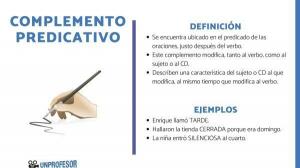What are textual CONNECTORS
Textual connectors, as we say, constitute a linguistic tool that reinforces the cohesion of the text. This means that, to make the ideas in the text appear more united and fluid, we usually use textual connectors.
And, although we do usually find these connectors in spoken language, they are much more abundant in written texts. With this, the transmitter of the text rhetorically organizes the ideas that appear in it to give it a logical, coherent and bound order. This is how the receiver or reader of the text can simply and easily relate the ideas of the texts to each other.
Regarding their structure and characteristics, they are usually made up of one or more words, although the common thing is that they are made up of more than one. In addition, on many occasions, these textual connectors acquire a polysemic value (of more than one meaning that varies according to the context in which they are used).
Thus, the connectors are conducive to connecting ideas, introducing them, concluding or continuing them
more extensively. That is why it is very useful to know and take them into account, because they will always make our text obtain much more quality before a possible reader.
There are many types of textual connectors depending on their nature when used within a text. We cannot cover all that exist, but let's look at some of them:
Additives
In addition, Also, In addition, It should be said, It should be mentioned, Even, More still, Not only... but also, Another feature of, To start, To finish, On the one hand, On the other hand, On the one hand, On the other hand, It should be added that, Also, It should still be noted, ...
For instance:
- What's more From the ideas set out above, we can say that there are several variants.
- On the one hand there is what happens with tangerines, for the other as far as oranges are concerned.
These are the addition connectors.
Contrast
Conversely, On the contrary, Now, Unless, Although, Despite, As well as, Even if, Otherwise, Instead, In contrast to, However, Or rather, But, However, ...
For instance:
- Despite that things were not going quite well, they still remained.
- Everything smelled great Nevertheless it didn't look very good.
Temporary
Next, At the same time, Previously, Before, Before examining, After, During, First / second /… place, First / second /… instance, Last, Right away, Finally, Immediately, Then, Later, While, To start, To finish, Last, Recently, Simultaneously, …
For instance:
- First we have wild flowers, […]. In second place we came across the flowers we planted at home.
- Immediately, Vicenta got up and yelled at the children.
Summary
Briefly stated, In short, In a few words, In summary, In synthesis, In short, Finally, To simplify, We can condense what has been said so far, Summarizing, Synthesizing, Well, ...
For instance:
- summarizing From what we have seen so far, it is difficult to reach a common conclusion from all the studies analyzed.
- Finally, we must emphasize that many revealing data have been found regarding the subject we have discussed.
Conclusive
So, As a result, Hence, So, So, In conclusion, Consequently, In definitive, This is why, To conclude, Therefore, For this, For which, Therefore, For all this, …
For instance:
- In conclusion, We cannot affirm that those ideas that were previously held to be true are fully accepted today.
- Thus, things are more difficult now than before.
Causes
Because of, As, Considering that, Given that, Given that, Because, Since, Considering, Since,... Here are more examples of causal conjunctions.
For instance:
- Taking into account everything stated above is a very illuminating result.
- It is difficult to research in that field, given that there are not too many previous studies that address it.
Clarifications
As has been said, By this I mean that, It should be emphasized that, In other words, In other words, That is, It is necessary to emphasize / underline that, That is, All this seems to confirm that, A thing is... and the other...
For instance:
- That is to say, that tonight we are going to be partying all the time.
- One thing is buy you a car, and the other that they give it to you.




